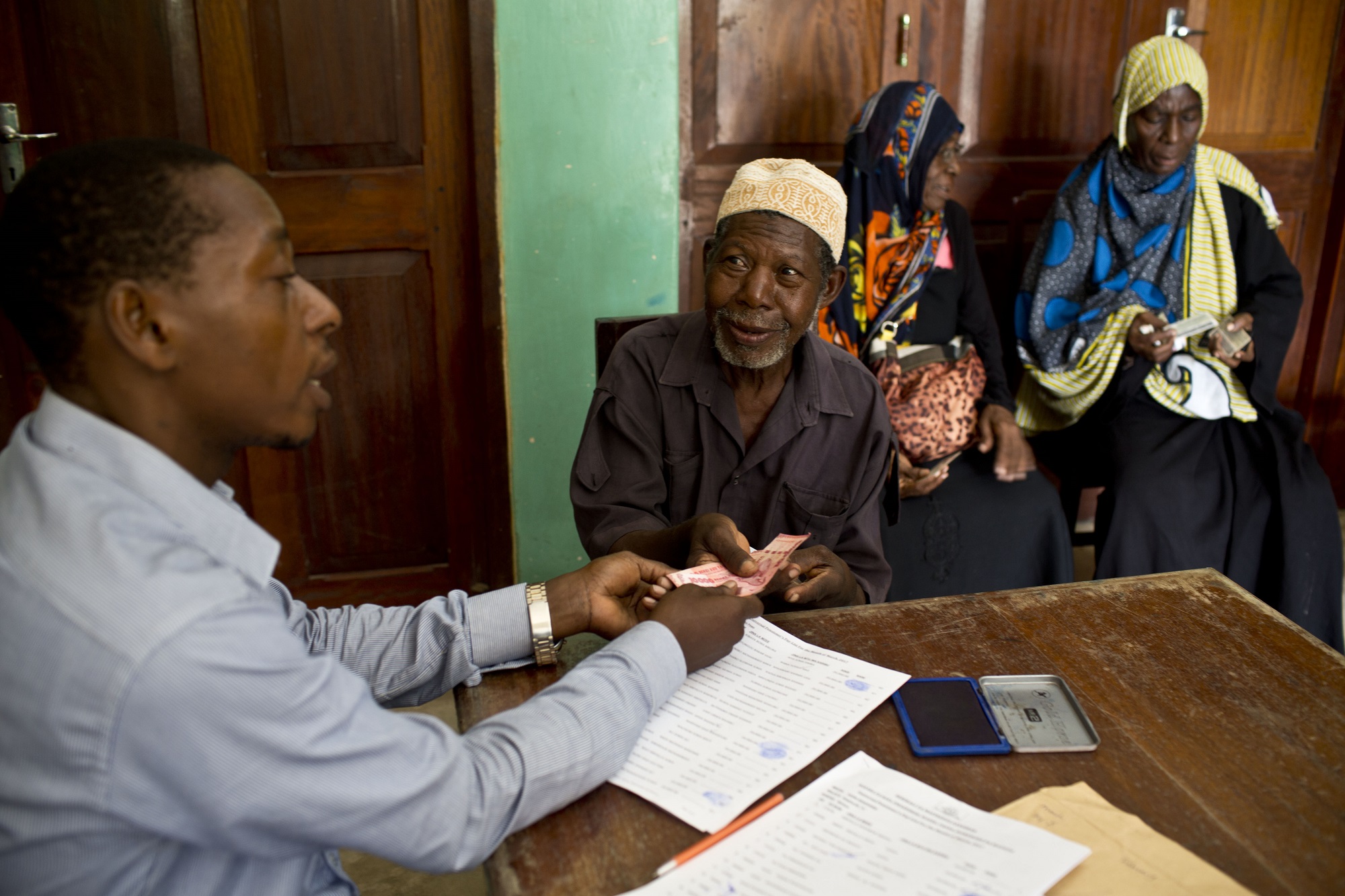
(c) Kate Holt/Age International
An older man collects a cash transfer in Tanzania
By Ben Small
The provision of and older people’s access to health services across Ethiopia, Mozambique, Tanzania and Zimbabwe is wholly inadequate, a new report from HelpAge International and Age International has found.
Launched today (26 May) at the Better health for older people in Africa conference in Tanzania’s capital Dar es Salaam, Cash transfers and older people’s access to healthcare explores the barriers older people face in accessing healthcare across the four African countries, looking at what impact cash transfers have on overcoming these obstacles.
The report paints a bleak picture of health services for older people in Ethiopia, Mozambique, Tanzania and Zimbabwe. Health expenditure is well below targets set regionally, and the lack of investment results in limited availability, accessibility, affordability and adequacy of healthcare.
Each country has an insufficient number of facilities and, of the four countries, only Zimbabwe has any geriatricians and only Mozambique offers any training on geriatrics.
“Many people are unaware of older people’s health conditions. They go to the doctor and are told ‘you are just old’,” said Dr Catherine at a health clinic in Tanzania.
Older people often have to pay for health services even when there are policies in place to alleviate this financial burden – there is inconsistency in service provider’s policy compliance, and poor availability of equipment and medication.
“Whenever I go to the doctor about any issue, the doctor gives me a prescription and tells me to go and buy the medicine. Only paracetamol is given free and the rest I have to pay for,” said Manhica from Mozambique.
“I just remain at home and buy the paracetamol from here because when I go to the doctor, it is only one I am going to get. Why would I go all the way [to the doctor] to pick up paracetamol?”
Transport expenses to reach facilities are also significant and, together with the cost of the services themselves, the expense of receiving healthcare is a significant barrier.
Older people often have the dilemma of weighing up their need for health services against other household needs, particularly those of their grandchildren.
Access to cash is, therefore, very important to address the demand-side barriers that stop older people accessing healthcare. When older people receive cash transfers they use them to cover transport to facilities, consultation and treatment fees, and prescriptions.
“We use cash transfers as transportation money to help us go to the hospital when sick. We also use it to buy drugs when we are sick or when prescriptions are done,” said a woman from Mbarali, Tanzania.
Money also helps improve older men and women’s physical and mental wellbeing by boosting self-esteem and their access to food and sanitation.
Yet, older people across Ethiopia, Mozambique, Tanzania and Zimbabwe felt that the monetary value of cash transfers was insufficient to transform the extent to which they access health services, or to prioritise their health over other pressing needs.
Furthermore, even when cash transfers are used to access health facilities, the poor quality of the services across the four countries meant that for some people they still could not access the appropriate care.
“Cash transfers, such as social pensions, must be regular, have wider coverage and be of higher value in order to allow older people to better overcome the barriers to access health services,” says Dr Prafulla Mishra, Africa Regional Director, HelpAge International.
“Older people’s health needs must be taken into consideration in government strategies and programmes, ensuring they access free healthcare where such entitlements exist and introduce them if they do not.
“Lastly, there must be a push for more and better age-disaggregated data and evidence so policymakers better understand older people and their health needs.”
Please download the full report to find out more.
